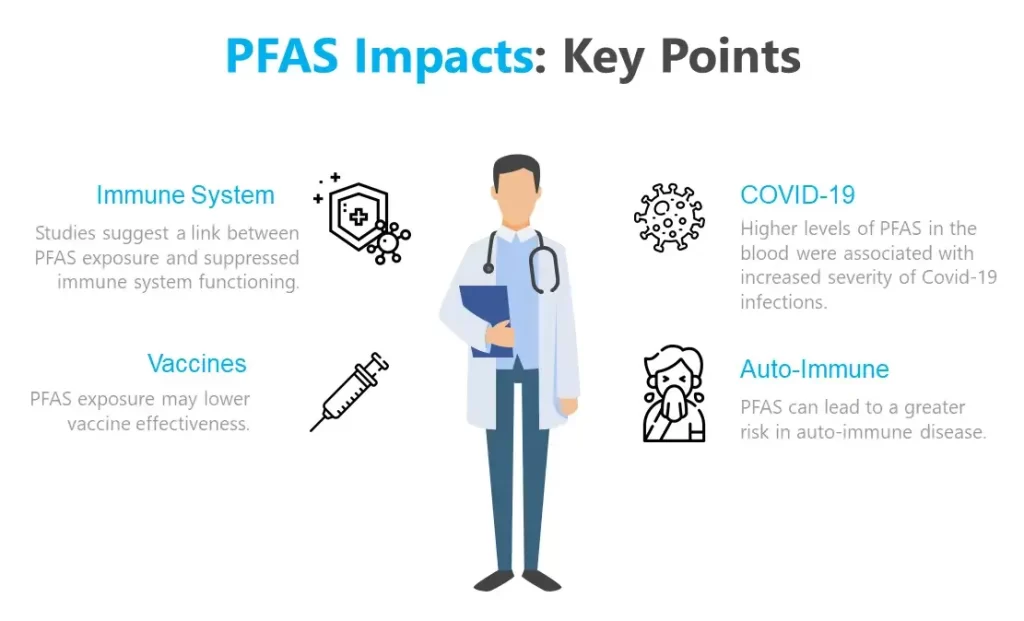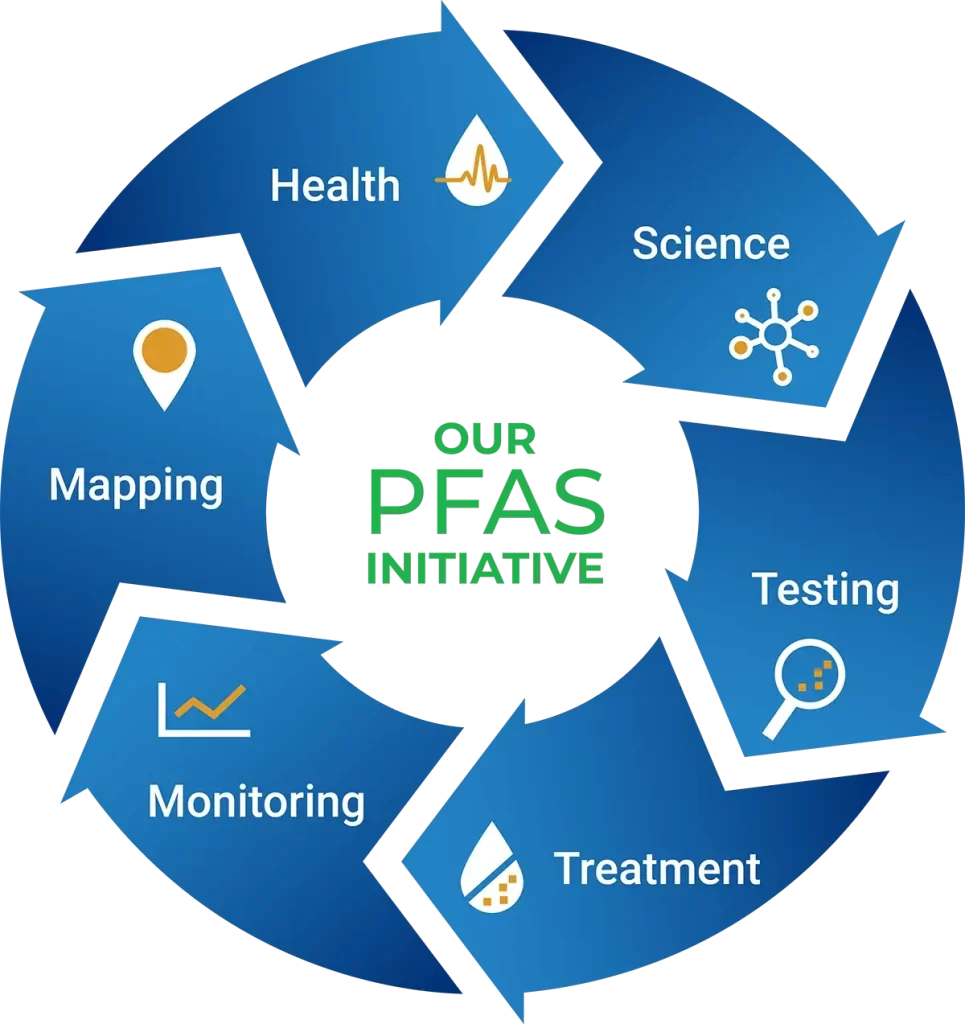Summary
Recently, the Environmental Working Group (EWG) completed a review of the scientific literature regarding the impacts of PFAS on the immune system, COVID-19 infection severity, and how it may influence antibody response to vaccines and other health issues, such as asthma, and related auto-immune diseases. Below, you can find information on these impacts and links to the studies.
Immune System Impacts
Studies suggest a link between PFAS exposure and suppressed immune system functioning.
In a 2016 review of PFAS immunotoxicity, the National Toxicology Program concluded that two of the most studied members of this large family of chemicals, PFOA and PFOS, can pose “an immune hazard to humans based on a high level of evidence that PFOA (and PFOS) suppressed the antibody response from animal studies and a moderate level of evidence from studies in humans. ”These studies on antibody response are some of the strongest evidence of adverse effects on the human immune system.
Study
https://ntp.niehs.nih.gov/ntp/ohat/pfoa_pfos/pfoa_pfosmonograph_508.pdf
Additional study: https://www.tandfonline.com/doi/full/10.3109/1547691X.2012.755580
COVID-19 Infection Severity
Higher levels of PFAS in the blood were associated with increased severity of Covid-19 infections.
A recently published study (October 2020) found that higher levels of PFAS in the blood, specifically PFBA, were associated with increased severity of Covid-19 infections. PFBS is one of the only known PFAS to substantially accumulate in lung tissue, and this connection may be linked to the study findings.
Please note: this study hasn’t been peer-reviewed and more research is needed to understand how PFAS exposure may affect illness from COVID-19. We included this study so you can be informed of the potential risk.
The Centers for Disease Control and Prevention and the Agency for Toxic Substances and Disease Registry have acknowledged that PFAS exposure may suppress the immune system and put certain populations at greater risk of contracting Covid-19 and greater risk of increased severity of infection.
Study
https://www.medrxiv.org/content/10.1101/2020.10.22.20217562v1.full.pdf
CDC/ATSDR Statement: https://www.atsdr.cdc.gov/pfas/health-effects/index.html
Lowered Vaccine Effectiveness
PFAS exposure may lower vaccine effectiveness.
The link between higher blood levels of PFAS and reduced antibody production following vaccination has been observed in studies of both children and adults. Although nutrition, exercise and other factors affect immune response, PFAS also clearly plays a role.
Several studies reported that elevated PFAS levels among infants, children, and adults were associated with a weaker response to tetanus, measles, and flu vaccines.
Studies
Infants: https://www.ncbi.nlm.nih.gov/pmc/articles/PMC6190594/
Children: https://ehjournal.biomedcentral.com/track/pdf/10.1186/1476-069X-12-35.pdf
Adults: https://www.ncbi.nlm.nih.gov/pmc/articles/PMC4739630/
Auto-Immune Disease
PFAS may lead to a greater risk in auto-immune disease.
Children are especially vulnerable to asthma, an example of immune system hypersensitivity also linked to exposure to multiple PFAS chemicals. PFAS was also linked to increased risk in food allergies among adolescents.
Studies
Children: https://www.ncbi.nlm.nih.gov/pmc/articles/PMC3620752/
Adolescents: https://www.sciencedirect.com/science/article/abs/pii/S0013935118305760?via%3Dihub
https://www.sciencedirect.com/science/article/pii/S0160412015301227?via%3Dihub





